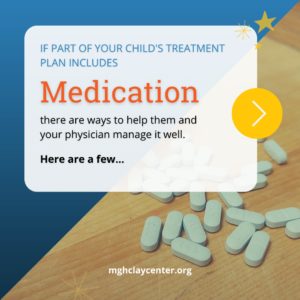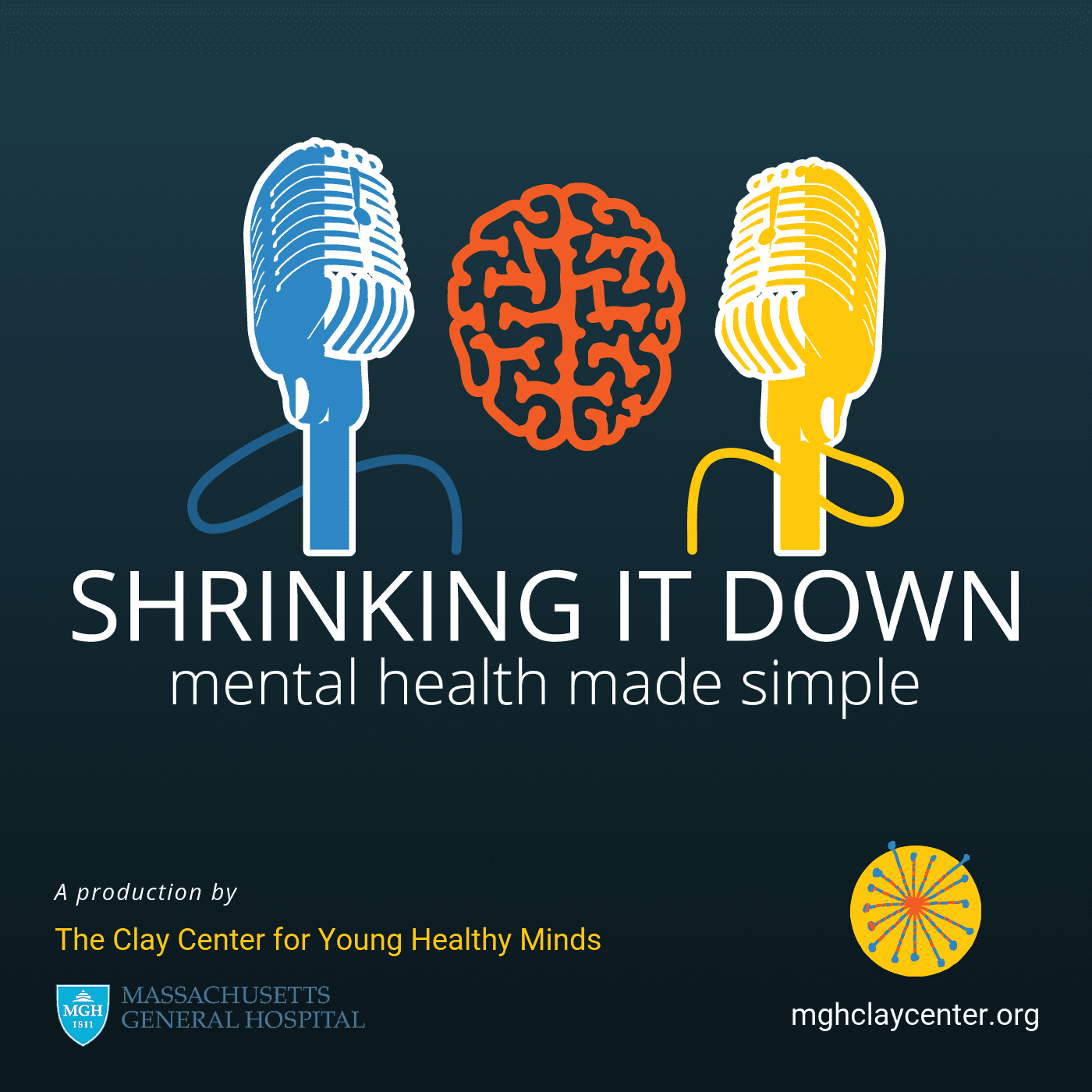Your Child’s Medication: How to Help Organize and Manage Their Treatment

Posted in: Parenting Concerns, Young Adults
Topics: ADHD, Anxiety, Depression, Mental Illness + Psychiatric Disorders
JUMP TO: Tips for Managing Medication
Navigating the healthcare system is often a nightmare for both parents and doctors.
Let me share an experience I had yesterday, while treating one of my adolescent patients:
I got a fax from a pharmacy stating that one of my patient’s needed a prior authorization (PA) to receive a medication they needed – a medication she had taken for years without the need for PA. I called the insurance number written on the fax and after endless prompts I was connected to someone who asked me why I was calling. Wrong department.
I was then transferred to another department. After a 20-minute wait, someone answered, then proceeded to ask me the same questions before asking me to “please hold.” After another long wait, I was then disconnected.
I called back and a new person answered, asked the same set of questions…asked me to “Please hold” and then…I was disconnected again!
Although I was now quite frustrated, I called back and learned that I had the wrong department. This individual also told me that my patient was “not on this insurance plan” and gave me a new number to call.
This was a surprise to me, because I did not know the patient’s insurance plan had changed, which would indicate a possible change to their medication insurance plan too.
I called the new insurance company and went through another endless series of prompts before reaching a very nice person who told me that I had not reached the department for prior authorizations (PA’s) and transferred me to the pharmacy.
The pharmacy told me:
“We don’t do stimulants or any controlled substances over the phone. I will fax you a form, you can send it back, and it will be processed in three days.”
“No, I said, I have done this over the phone a thousand times. She is out of meds, beginning school, and we cannot wait.”
“OK, it’s urgent? Let me check with a supervisor.”
Hold.
“I’m so sorry, we prefer FAX, but if things are urgent, you just need to say that.”
I was finally able to get the required authorizations and the correct phone number to call for the future. Afterwards, I called the patient, the patient’s parent, and the pharmacy again to indicate that everything had been completed. I also made it a point to ask my patient for her new health and medication insurance information.
Meanwhile, it was almost two hours of my time.
This may be a long story to share, but it is not unusual at all, which is very unfortunate and frustrating. The system of navigating health insurance plans and authorizations is a mess and all we are trying to do is provide proper care for our patients.
Tips for Managing Medication
What can you as a parent or guardian do to help your child and their doctor organize their medication, to be sure that they have access to that medication when they need it? Here are nine important tips.
You can also view these tips in our Instagram Slideshow.
- Know that Your Medical Insurance is Separate from your Medication Insurance. Keep a record, preferably attached to the history above, with your medical insurance, ID number plus suffix – the two-digit number after the ID, patient’s name, subscriber’s name, date of birth, home and cell phone numbers. Do the same for your Medication Insurance. Most of this data will be the same, except the company and ID will be different. Write down the phone numbers from the back of your cards for medical care, and medications. When insurance plans change, go through the same process, but do not erase the first round of information, as practices and pharmacies may just have the first set of data.
- Keep an Ongoing Record Regarding Your Child’s Care. Many parents and caregivers have been through several doctors, clinicians of all sorts, tests, changes in treatment and new insurance policies. Keep a record of all of these, as many doctors need them to order tests, get PAs, fill out lengthy forms for hospital care, and much more. Much of this information is sadly not included in many medical records, even by the most dutiful clinicians. And if you get a new doctor from another system, the historical information they need is usually sparse or unavailable. Also, your records can be imported into many systems, patient gateways, online, and that helps both clinicians and administrators. *
- Keep Track of Your Child’s Medication History. Unfortunately, many kids go through a number of medication trials, and some PAs require that they have been tried on the older generic medications before authorizing a new branded one that is more expensive. Many medical records do not keep track of what has been used in the past, especially if you have used other facilities or clinicians, as they are erased to keep up to date. But we need them to prove what we have tried in the past.
- Keep Track of Side Effects and Failed Medication Trials. It is super easy to forget why a medication was tried and why it was stopped. Many times, this was due to side effects that were not tolerable. Other times, the medication was stopped for any number of reasons, so a full trial was not completed, and that leaves it open to try it again. This information is very important for your clinician.
- Keep Track of Any Other Medications Your Child is On. We know that certain medications have negative interactions with other medications. The medical record may not have what previous medications were used, so if a bad interaction happened, you may easily forget what your child was taking. Keeping your own record is very helpful for your clinician to decide what medication to choose.
- If a Medication is Suggested, Call Your Medication Plan. It’s super important for you to call and let your prescriber know if it is covered, needs a PA, and for you, what the co-payment is – it may be large!
- Remember that Controlled Substances Cannot be Called In. Medications that are controlled, such as stimulants, anti-anxiety medications that are known as benzodiazepines (like clonazepam, lorazepam, and others) need to have electronic prescriptions or printed copies of prescriptions delivered to the pharmacies as they are monitored. Both doctor and patients have controlled substances monitored due to increased rates of addiction, determining drug seeking behavior in some patients, and over-prescription by providers.
- Keep Track of Your Child’s Medication Supply. Please don’t wait until the last minute or when you have run out to get a new prescription. The pharmacy may not have what you need or a PA that is time limited may be needed, and for some medications, like certain antidepressants or benzodiazepines stopping abruptly without taper may cause a withdrawal. While the withdrawals are not life-threatening, they are very uncomfortable. Most plans allow mail orders, and they usually alert you by email if you are getting close to the end of a prescription and/or need a refill; and local pharmacies have texting services that serve as alerts. This helps you keep track of your medication needs and supply.
- Keep Track of your Doctors and Testing Results. Many times, your doctor will change and there is no substitute for the new clinician to talk with the previous one about the diagnosis and treatment provided.
I realize this seems to be a lot to do, and it is!
But to make the care of your child easier, to ensure that you get proper authorizations in a timely fashion, and for you to have a good record that is often required for any number of reasons, be proactive! It will help with PAs, hospital, or clinic referrals, or if you move to another town or state, you can carry your record with you.
Make a spreadsheet on your computer that has all these elements, and you and your clinicians will have a much easier time caring for your child. This is an important part of truly collaborative care for your child.
This article was reviewed by Janet Wozniak, MD, Associate Chief for Quality & Safety MGH Department of Psychiatry, and Nina Deppe *, Assistant to the Chief of Child Psychiatry, MGH.


 Share
Share Tweet
Tweet





